Igor Shuvalov: ''We all got used that Tatarstan is the leader. We thank it for always great results''
Putin’s former bodyguard criticised the federal power while Chuvashia’s governor was surprised at the attempt to say what concerned him
The Agency for Strategic Initiatives (ASI) made conclusions of the National Investment Climate Rating: all the regions showed positive dynamics. Tatarstan conserved the title of the most attractive one, Chuvashia reached second place thanks to small business and the Far East won't be able to complain about climate and remoteness any more. A growth of Moscow and Petersburg was called a sensation in the Agency for Strategic Initiatives. Realnoe Vremya tells the details.
The topic of attraction of investments traditionally became one of the main issues discussed during the Petersburg International Economic Forum (PIEF). Although possibilities of a better work with business were discussed, the general information background was positive.
The digits announced by Russia's President Vladimir Putin in his speech were also positive. According to him, the flow of direct foreign investment to the economy of the country for the first three months have reached the best indicators in the last three years and made up $7 billion.
Those who were responsible for the attraction of investments to regions and the country were also positive. At the presentation of the National Investment Climate Rating in Russian regions staged by officials of the Agency for Strategic Initiatives on the second day of PIEF, all the regions from the top 20 of the rating showed a growth of total index without depending on the place they occupied. Many regions were praised while Tatarstan that has chaired the list looked as if nobody had been surprised at the first position in the investment rating.
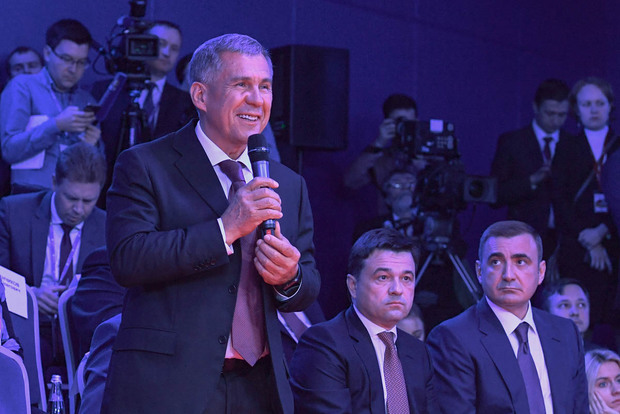
Tatarstan President Rustam Minnikhanov commented the results of the republic in a modest way: ''It is a great honour to be on this list.'' According to him, such ratings are a very useful job. ''We analyse our reserves and areas that need to be improved in detail after every rating,'' Rustam Minnikhanov commented. As the latest research's results show, the Tatarstan president concluded that they needed to analyse the work of supervisory bodies having detected a growth area in the reduction of administrative pressure on business. He explained last year's success by an active work in educational business programmes and development of the existing infrastructure.
Chuvashia and Moscow followed Tatarstan. According to Director General of the Agency for Strategic Initiatives Svetlana Chupsheva, the promotion of Moscow that has entered the top 3, Petersburg appearance in the top 20 and investment dynamics of Far East that used to be at the bottom of the rating became a sensation.
Tula Oblast was fourth in the rating, Kaluga – fifth. Then Tyumen Oblast, Krasnodar Krai, Voronezh, Moscow, Ulyanovsk were in the top 10. Tambov, Kostroma Oblast, Bashkiria, Lipetsk, Vladimir, Rostov Oblasts, Saint Petersburg, Mordovia, Ivanov and Leningrad Oblasts were in the top 20.
Five times faster and three times cheaper
Almost all the speakers paid great attention to Moscow and Saint Petersburg as cities-windows that affect Russia's positions in world investment ratings particularly that of The World Bank.
Mayor of Moscow Sergey Sobyanin took the floor and praised the merit of Moscow because Russia has already risen to the 40 th place from the 124th having left many countries behind. He thinks the success of the capital in the ASI's rating is mainly linked with the doubled volume of state orders in small entrepreneurship, an explosive growth of the number of technoparks. According to the data of the rating, entrepreneurs called problems with permission for construction in Moscow as problematic zones. In answer to it, the mayor replied negatively: ''restrictions on construction in Moscow are fundamental by default, it is not possible to build everything and everywhere''. At the same time, business has got huge concessions in the last years, for instance, a possibility to construct in industrial zones. ''We reduced the time to grant a permission for construction five times and decreased the price for connection to networks three times,'' Sergey Sobyanin noted. In conclusion, he added his helping of investment optimism having reminded that investments of business in the fixed capital, tax collection dropped. ''It has not happened in the last crisis years: business demonstrates its investments are increasing, export of products, trade turnover and IT turnover are growing.
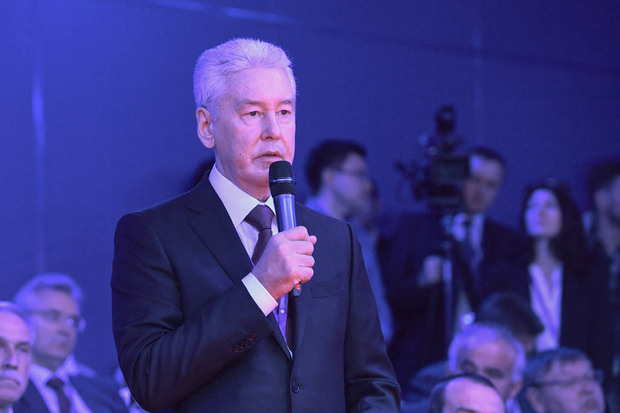
Speaking about the success of his team, Georgy Poltavchenko, governor of Saint Petersburg, told what helped his decision to create and personally head the business support office. During the work of this office, a mechanism simplifying the connection of business to electric networks was created. Now it is happening with a simultaneous formation of a contract. As he says, it is the best practice in Russia.
Petersburg has seriously augmented micro banking volumes for one year – loan volumes increased 2,3 times, from 1 to 3 billion rubles, the interest rate for manufacturers and innovators reduced from 10 to 5% thanks to municipal subsidies.
According to Poltavchenko, the creation of an export support centre was an important step. ''Thanks to it, we have not only reduced during the year but also got 2 times more experts. In addition, 85% of them are small businesses. When asked how he managed to do it, he told that Saint Petersburg subsidies small businesses for certification of their products abroad, transportation of their goods and entrepreneurs' participation in international exhibitions and forums.
''Thank God we don't have mineral wealth''
The Republic of Chuvashia surprised everyone with its growth in all the indicators having jumped from the sixth to second place within a year. Mikhail Ignatyev, the republic's governor, thanked the estimation and noted that one in three rubles in Chuvashia comes from small business. The goals to reach in the future are to develop ''big high-tech business'', increase average salary from today's average 23,000 rubles to 30,000 rubles. ''Thank God we don't have mineral wealth. People are our main wealth,'' the head of Chuvashia made his own positive contribution having noted that the very one in three rubles of the republic is spent on education. ''These are investments, not expenditures,'' he said.
Mineral wealth was not the secret of Moscow Oblast's success too. According to Governor of the oblast Andrey Vorobyov, the creation of institutes for business helped, for instance, Construction Assistance Centre where a businessperson can create all the documentation online.
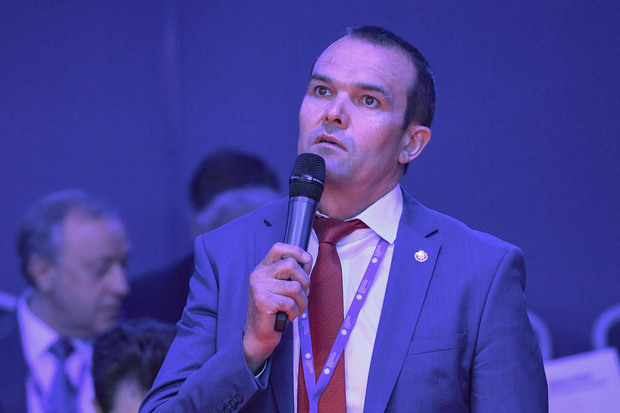
Inciting to participate in the work of federal experts helped Amur Oblast. Governor Aleksandr Kozlov who also used the rule ''chair if you want to win'' included representatives of federal bodies in working groups: prosecutor's office and tax office.
The Far East chose the same way. ''We were calmed down because Moscow was behind us,'' the governor started with a joke. ''Actually, we needed to defeat ourselves. We come from the Far East – we have objective reasons.'' They attracted ASI experts to stop complaining about the climate and remoteness and to have a look from another angle. And those helped to deal with growth areas. ''It turned out we had a catastrophe in construction. It took up to 300 days to create permission documentation. Today this period has been reduced twice,'' he said. ''It seemed to us it was rubbish. It turned out to be the main thing.'' The governor also shared another misbelief: they thought it was enough to give much money but it turned out that non-financial support was more important. ''We thought we needed to give money, and everything will be fine. But it doesn't work. It is necessary to teach and consult, support,'' he noted.
A sting in the tail from Tula
Only Governor of Tula Oblast Aleksey Dyumin was not positive. As it is known, the latter headed Putin's security staff for a long time. And some experts see him as a possible heir. As the meeting showed, Dyumin already feels fine in the governor's chair and is not going to be a grey man among the regional governors.
Having taken the floor, Dyumin sincerely surprised why nobody was speaking about existing problems. ''Such a calm attitude of my colleagues surprised me. Are not there really any questions on control of supervisory bodies?'' the governor was indignant. ''Business is checked by normative documents created for big enterprises during the 80-90s. It is killing small business!''
He reminded that Russia's President Vladimir Putin already told about changing these documents. But, as he says, no measure was taken. ''This job doesn't take only one year. The volume is too big. It will be necessary to arrange a federal meeting without cameras and discuss everything,'' he offered.
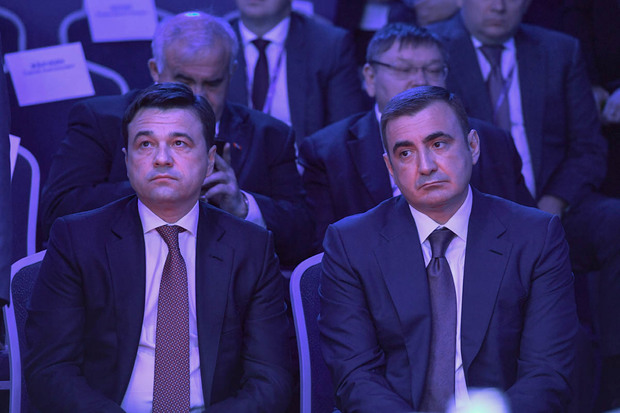
''I did not know we could speak about problems,'' the head of Chuvashia started to speak having heard his Tula colleague. He offered to introduce a system to evaluate the work of federal functionaries who are responsible for the improvement of the investment climate: ''Let's see whether they are trendy like we are.''
Aleksandr Shokhin, the head of The Russian Union of Industrialists and Entrepreneurs and member of the Bureau of the Supreme Council of United Russia supported the idea, in general. ''I am not sure whether we can make such a rating between bodies and municipalities. But we can certainly put marks from regions. Let them look at their KPI like governors,'' he nodded to the monitor with the regions' ratings. ''Let them look how the country evaluates them.''
In answer to it, the Russian president's aide Andrey Belousov reminded the governors they have the right to legal initiative. ''It is not necessary to wait for meetings,'' he urged. ''Many changes have been made. We need to make them real.''
Attraction of investments by additional money
Concluding the debate who needs to evaluate whom, First Vice-Prime Minister Igor Shuvalov said the rating as a project will develop towards ''more flexible settings''. The work of regions will become more transparent. A machine and technologies will show the efficiency.
He could not help but comment the situation in the Far East having noted positive changes. Igor Shuvalov highly recommended not to sell products to Moscow and Petersburg but reach Japan and China. ''There are many people there. So you, Far Eastern regions, have everything to become leaders. You need to be at the top,'' he insisted.
''We all got used that Tatarstan is the leader. We thank it for always great results,'' the first vice-prime minister continued. ''But the country will be different in 5-10 years. We need to be ready.''
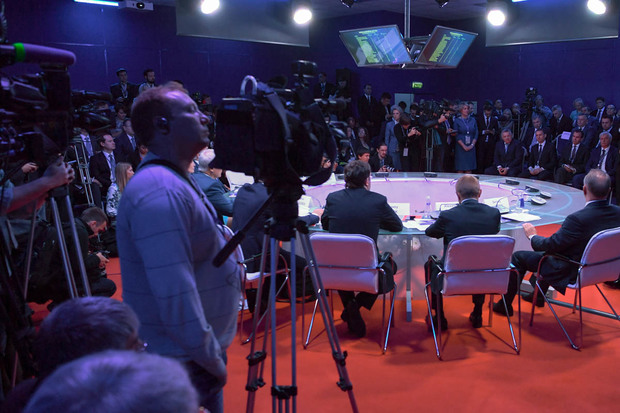
Aleksandr Kalinkin, Opora Rossii All-Russian Public Organisation of Small and Medium Entrepreneurship left forecasts and started to speak about offers. He offered to base on economic incentives for leaders of the top 20. Russian president's aide Andrey Belousov said a project with such motivation had been considered. ''The rating will evaluate the governors' work, and it will be based on considerable economic incentives.'' ''Personal or regional?'' the hall asked. ''Both personal and regional,'' Andrey Belousov gladdened all the people who were present there.